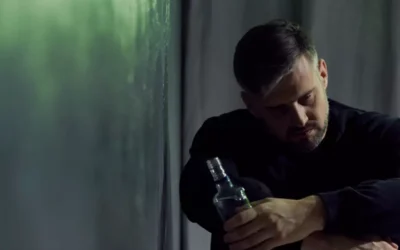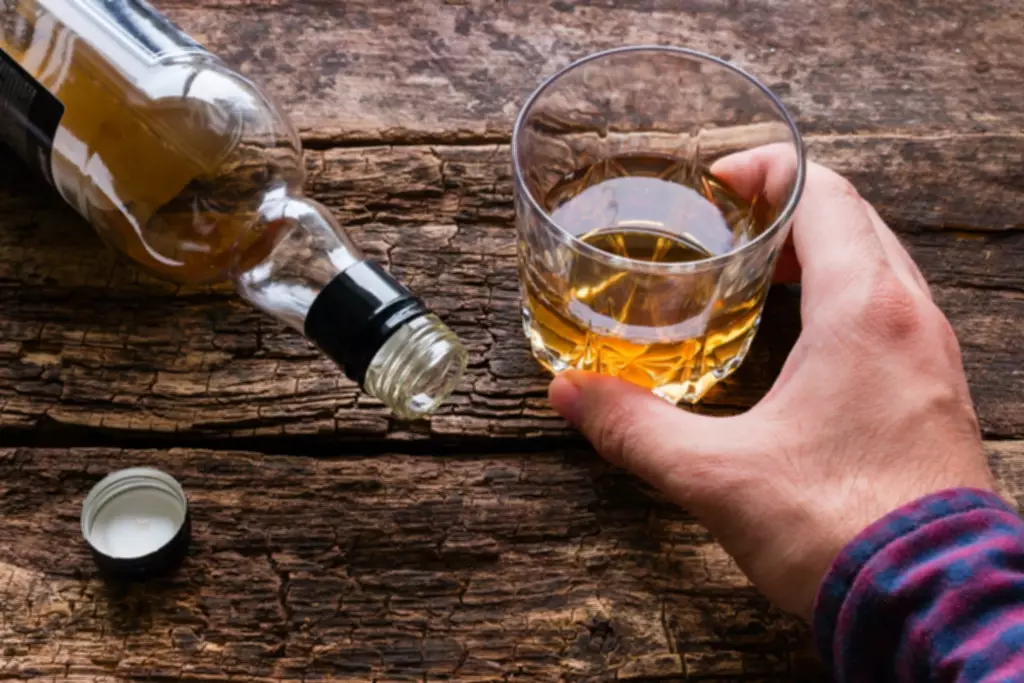Content
- Why Honesty in Addiction Recovery is Critical
- Treating Addiction To Alcoholism And Anxiety
- Why Does Alcohol Make Anxiety Worse?
- Anxiety reconceptualized
- Agoraphobia following amphetamine withdrawal
- The phenomenon of panic in nonclinical populations: Further evidence and methodological considerations
This can result from alcohol’s impact on your brain’s amygdala, which controls your unpleasant emotions. The first stage happens in the first day or two and includes symptoms like sweating, irritability, headache, nausea, and vomiting. When alcohol intake is abruptly halted, over-excitability results, causing withdrawal symptoms. These are the signs of the body attempting to reset itself or to achieve a state of balance again.

In a heavy, long-term drinker, the brain is almost continually exposed to the depressant effect of alcohol. Over time, the brain adjusts its own chemistry to compensate for the effect of the alcohol. It does this by producing naturally stimulating chemicals (such as serotonin or norepinephrine, which is a relative of adrenaline) in larger quantities than normal. Symptoms can become severe, and it can be difficult to predict which people will develop life-threatening symptoms.
Why Honesty in Addiction Recovery is Critical
This can happen because of the effects that alcohol abuse can have on the person’s body, or from withdrawal if they go too long without a drink. It is difficult for those who have developed symptoms of both alcoholism and anxiety to truly remember what came first, but figuring that out can be a monumental step in their recovery. Eating plenty of healthy, nutrient-rich foods during alcohol detox is important to keep the body functioning normally and help alleviate anxiety and alcohol withdrawal panic attacks. As alcohol and anxiety are closely linked, research has also found that individuals who seek treatment for panic-related problems often meet the diagnostic criteria for alcohol use disorder.
Read on to gain a better understanding of this common occurrence. Stress control and healthy living is also important, and it’s not a bad idea to make sure that you’re around people to help you control your emotions during https://ecosoberhouse.com/ the withdrawal process. There are some people that get severe physical symptoms during withdrawal, and having someone there can be very valuable. The withdrawal symptoms themselves can be incredibly frightening.
Treating Addiction To Alcoholism And Anxiety
Alcohol alters the levels of serotonin and other neurotransmitters in the brain. Although some people make the excuse of drinking to calm their nerves, alcohol’s effects on the brain can actually worsen their anxiety. A panic attack is characterized by the individual’s panic attacks and alcohol fear of losing control even if there is no actual danger. The person may have a strong physical reaction during a panic attack, which can feel as though they are having a heart attack. Alcohol withdrawal can produce both physical and psychological symptoms.
Is it normal to have anxiety when you quit drinking?
As people go through withdrawal, they may experience high levels of anxiety. This is usually the result of the increased sensitivity that the body displays when it has stopped drinking. The anxiety can be so severe that people feel as though they are on edge, and they may also have difficulties sleeping as a result.
If you or a loved one have an addiction to alcohol, evidence-based treatment may be the best option to alleviate severe withdrawal symptoms and stay on track to sobriety. Each binge or relapse makes the next withdrawal process more complicated and painful. These treatments can help ensure that you are able to detox safely and minimize the withdrawal symptoms that you will experience.
Why Does Alcohol Make Anxiety Worse?
Not everyone will experience DTs symptoms, but those that do may have tactile or auditory hallucinations, disorientation, alcohol withdrawal seizures, high blood pressure, panic attacks, and more. The best way to quit alcohol while avoiding unpleasant withdrawal symptoms is to ask for help. If you have decided that it is in your best interest to stop drinking, one option is to seek help from a family doctor or primary healthcare provider.
- It’s even more common to find that after you’ve stopped drinking, anxiety makes you want to go back to alcohol.
- Alcohol withdrawal syndrome is the group of symptoms that can develop when someone with alcohol use disorder suddenly stops drinking.
- The individual going through withdrawal may be experiencing cramps, diarrhea, or nausea when eating.
- Don’t hesitate to seek emergency medical help if the individual is experiencing seizures, difficulty breathing, and extreme hydration.
- But once you start drinking, you can build a tolerance to the de-stressing effects of alcohol.
Your abiltiy to cope with stress without alcohol may have become weaker. Then, any time you are under stress, your natural instinct will be to go back towards alcohol as you may not have any other effective coping strategies. One of the first noticeable symptoms of alcohol withdrawal is anxiety and irritation. The individual may be paranoid, fidgeting a lot, or experiencing panic attacks. One of the most important steps in relieving severe alcohol withdrawal anxiety and panic attacks is by building a strong network of supportive individuals around you.
What is a Panic Disorder?
For delirium tremens, treatment in an intensive care unit (ICU) is often required. In an ICU, your heart rate, blood pressure, and breathing can be monitored closely in case emergency life-support (such as artificial breathing by a machine) is needed. If you have withdrawal symptoms from drinking, then you have consumed enough alcohol to damage other organs. Your doctor will evaluate your usual diet and check for vitamin deficiencies because poor nutrition is common when someone is dependent on alcohol.
Alcohol is a GABA receptor agonist, which means it binds to specific GABA receptors in the brain and mimics the effects of GABA. After drinking, it results in sensations of relaxation or fatigue. GABA levels drop when alcohol’s effects wear off, which causes a tense, hypervigilant, and overstimulated state.
People with alcohol withdrawal syndrome can have a wide variety of symptoms, depending on how much alcohol they drank, their body type, sex, age, and any underlying medical conditions. Dangerous interactions between anxiety and alcohol abuse typically begin when a person chooses to drink alcohol in order to help manage their nerves, fears or expectations. This may take the form of “pre-gaming” before a big party or having a shot or two before a blind date. If the individual person feels positive results from such actions, he or she may turn drinking before social settings into a routine.

Alcohol withdrawal in chronic alcohol use is reported to enhance noradrenergic activation and increase the likelihood of experiencing panic attacks in neurodevelopmentally vulnerable individuals. Mr. B, a 42-year-old automobile repairman, had a history of alcohol abuse for 16 years. He decided to stop drinking because of the unending insistence of his family and coworkers. These attacks even interrupted his sleep; he would waken abruptly with a choking sensation. Two months after his first attack, Mr. B came for treatment, reporting a gradual increase in his symptoms that he related to his abrupt alcohol cessation. He stated that he would not drink again whatever happened but that he needed help for this new intolerable situation.
This figure increases to 91% for those who have remained abstinent and have attended AA for 5 years or more. If you have an alcohol dependency problem and have decided to stop drinking, call your doctor for help. Your doctor can advise you and can prescribe medicines to make withdrawal symptoms more tolerable if they occur. Your doctor can also put you in touch with local resources that will help you to stay alcohol free. Symptoms of alcohol withdrawal typically improve within five days, though a small number of patients may have prolonged symptoms, lasting weeks.

